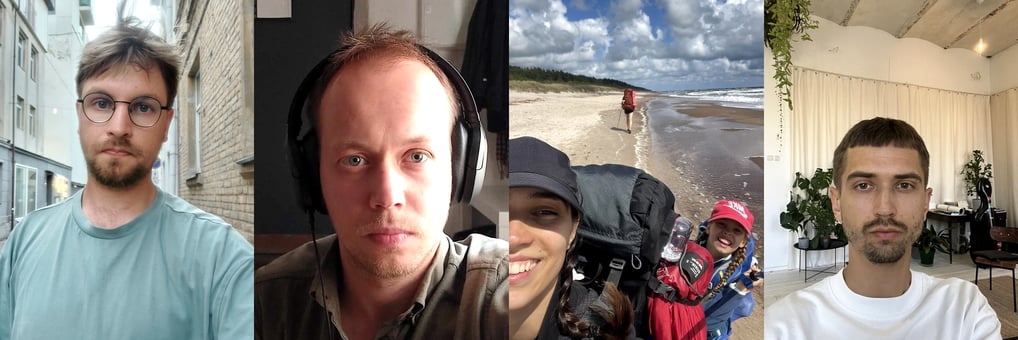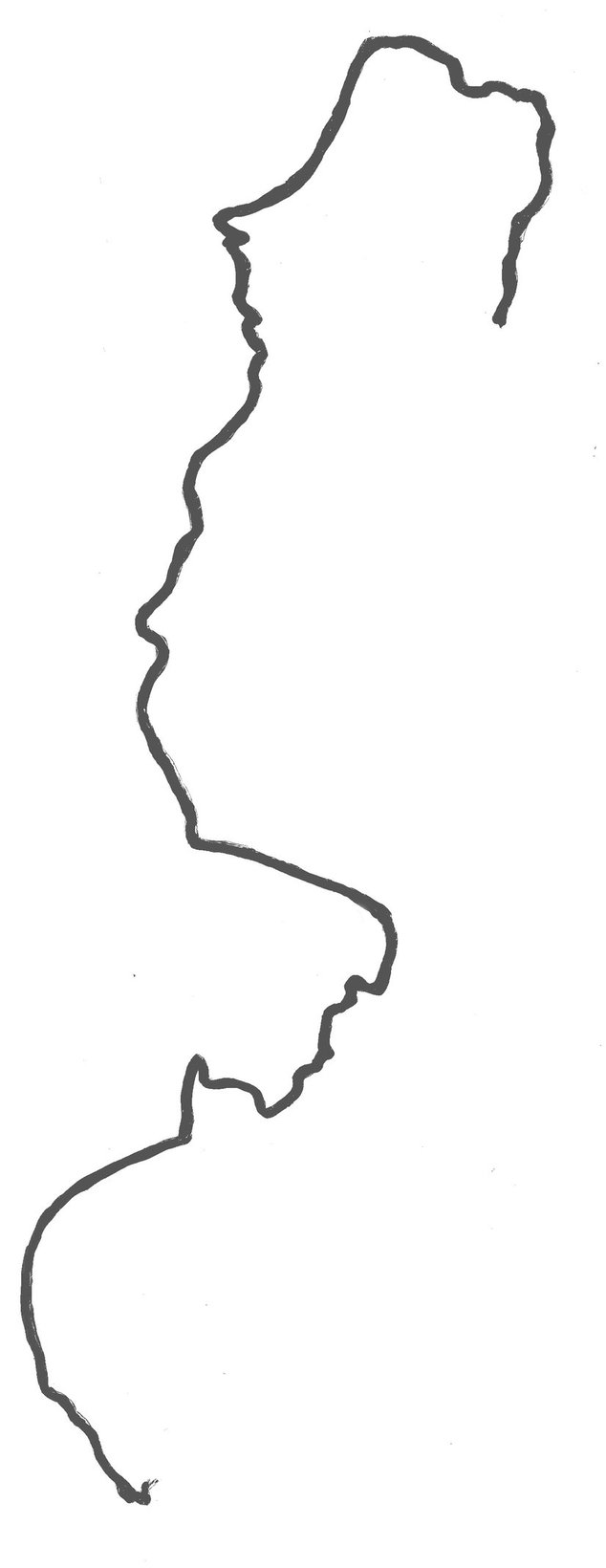



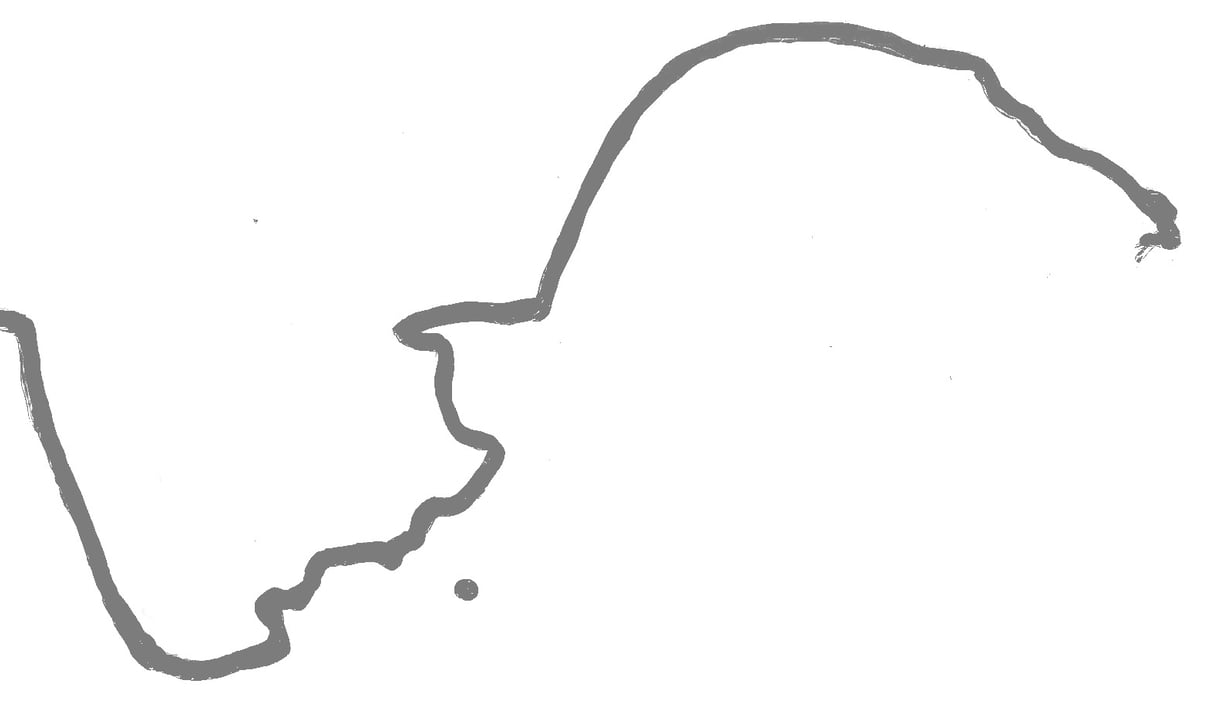



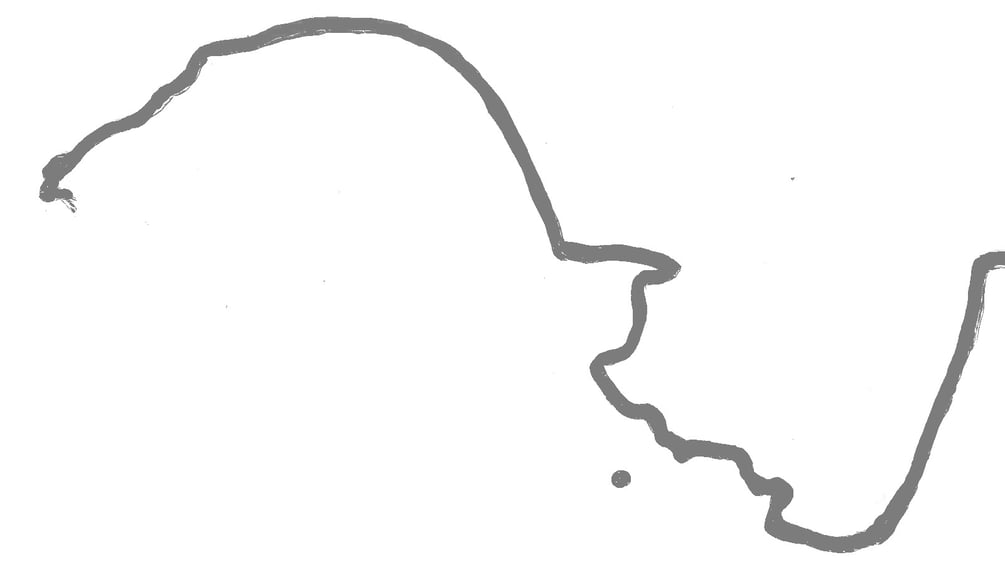



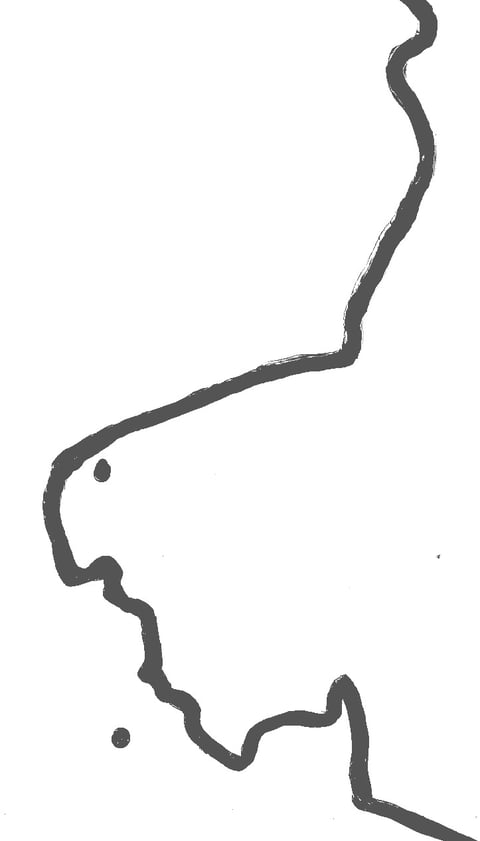



Vytautas: Do I have time? And you won't clarify this question in any way?
Dominykas: No, not at all.
Vytautas: I see. I have time. I hope I have time, I mean in an existential sense (laughs).
Lora: Well, yeah, I do. I do, but I'm not very good at organising it. I have a lot of it. And anyway, I feel quite free with that time.
Arnas: Basically, we all have time, we all have 24 hours, so it's very subjective in that sense. But it seems to me we all have the same time, it's just a question of how we use it differently.
Dominykas: And do you have any time for yourself?
Vytautas: Hm... My self and non-self time is very intertwined indeed, because I sometimes, and probably mostly, don't know when the so-called self-time is... Here again, what does it mean? When it starts and when it ends? Because I do some kind of action or creative work in my dreams as well... I think that's probably familiar to you, too.
Arnas: Yes, I think in terms of what I do in general, I have time for myself. But of course, it's probably impossible to avoid some moments when you have to do something which you don't necessarily want to do, which is not necessarily close to your heart, which is obligatory.
Lora: I have time, that's a fact - I have time, I just don't feel how it slips through my fingers. And it's always like a reminder - "Look, I have so much here, so much there - I have so much more time in the future!"
Arnas: It probably depends on what you do and whether you like what you do. If it is something that is personally close to your heart, it is basically "time for yourself", you are taking time for yourself. Of course, that time for yourself can also be time for something else that you also enjoy, whether it is time with family, friends, colleagues, or anything else.
Vytautas: Maybe I don't give myself such a specific, intentional expression - "well, here's my time, now I do what I want to do" - but such spontaneous escapes from the routine of time happen, and maybe more and more often and more consciously. One of my former university friends once said it very well - 'the more intense the workload and the more things you have to do, the more seriously you have to plan your time off', which I understand should be in direct proportion. If there are important things to do, then you should schedule your time off equally. I haven't reached that level yet, unfortunately, but I think it's an interesting idea
(pause for a moment to listen sounds of your current environment)
Lora: You feel helpless in that infinity. The feeling is one of fullness, that you are the head of life and time, and it's really fun to live in that sense of time. Maybe there comes a point in your creative work or everyday being when certain things "fall away", "fall off" and you realise what is your minimum, and what's your maximum - and you can go with it, you know what you need, what you don't, where to focus. And time is part of the whole process. Sometimes it could be a very fun experience - when you set out six months ago to have some time for yourself - concentrated just on one thing. But then you feel like you are in a sea of sweets, where things are not very systematic and choices are made intuitively in terms of planning. And in the end, time stands in front of you, so huge...And you realise that we just playing here - we are actually sailing on a ship where it is not up to us. It's like that with time too, it seems - "I really have everything"...
Arnas: Yes, lately, even if it's just in terms of resting or not doing something that is specifically related to what you do every day, having a few weeks at least once a year for a complete retreat is a great boost to productivity, at least in my experience. Because if you go without stopping, from one point of view it's fine, because you're creating and you're improving your skills, but at some point, you lose... maybe not excitement, but some sense of time.
Vytautas: Basically, I do it reflexively on a daily basis - I look at what is in the cinema repertoire and partly based on that, some time for myself happens, three, four hours for myself, with going to the cinema and all those nearby rituals. I also have to emphasize here that walks and getting to know the world, the unconstructed world of the artist, but so spontaneous and random, is very important to me, there is a great need for that. If I don't do that, if I don't go for a walk, I feel a very big inner lack. I really have to mention this because it is very important to me.
(pause to listen to the sounds of your current environment)
Lora: ...it's perfect, you sit behind the wheel, press the gas and drive either to your favorite lake nearby, or especially to the sea, to spend the night listening to the roar. Anyway, this is my biggest practice of the past year, I spent the most money on gasoline to the sea - when you have 24 hours and drive at night, just listen to how everything rustles, the ocean. I don't know... Infinite freedom, infinite happiness, that you dared, that everything doesn't matter, how powerful nature is, and you... Well, I'm talking so naively here, but that's how it really is - that you're standing by the sea, escaping from everything and being yourself most happy that you see something... and that you will come back!
Arnas: Well... all kinds of active walking... Basically, probably walking, cycling and the like. Maybe it's so banal, but for me it's such a great way to revive the body from such routine, pleasant routine work. He suddenly moved deliberately.
Lora: By the sea, you know you want to hear the wind with your face, feel everything in the air, and feel the spirit in your air. Somewhere you get a little high above yourself. And when you see the field, you want to touch everything, you should have land... Because there (at the seashore) wind, storm, it is not clear where you will swim... And there (in the fields) everything is very clear, every particle, every thing has its place and it cannot be washed away. The thoughts are very clear, there is not much room for dreaming. There is somehow: "to look back, to understand, to remember people, conversations, situations...". But to "remember", this time is not about a dream for me, it's about reproducing - who are you...
Arnas: But here maybe even, here the generally animalistic nature of man is where you always want it or not.... in a familiar environment you react in one way, in an unfamiliar one some defense mechanisms work. If everything is new, you react very sensitively, but if you return to some kind of cycle, then you relax more, those super sensitive receptors no longer work there and then you can somehow relax and deep'int elsewhere.
Dominykas: People go for a walk with different goals. Sometimes they go to think about some specific creative or work matters, and sometimes they just try to clear those thoughts. Are your walks purposeful? Are they diverse? And how spontaneous are they in terms of the route?
(pause to think about the answer)
Vytautas: Hm... Well, in terms of the route, they are really very spontaneous and I can boast (laughs) about this fact, that with those spontaneous choices I find a lot of "treasures", a lot of beauty, and I certainly don't choose well-traveled tracks, but... I can be found at night in all sorts of ways in the meadows, you can meet one somewhere crazy or there near people's yards, private houses while wearing clothes. It is in that sense - yes, spontaneous, the choices are spontaneous, but when it comes to the route, I still notice that cyclicality is important... It is important to make a circle. And now I moved to Markučius not too long ago and only in the last few weeks I started walking in that area, so again I highly recommend it to anyone who likes to walk and explore the city, it's a very interesting area. I go out... and I need to make a circle, go through those streets, through those hills, impressive. This is one trend. Another trend that I discovered not too long ago during those walks is that going forward and not making a circle, and returning the same way back is not the same way - it is a different way. Because you see a different picture, a different perspective. This was very interesting to me, because I also like to run, and I used to run quite a lot in the Karoliniškii Nature Reserve, and at some point I realized that these kind of wheels are rooted in me and I spontaneously turn around and go back the same way and wow... That world is completely different. This was also a more interesting discovery. And then moving on to your first question... Those walks of mine are usually not planned, it is again related to some inner need to escape, to go out, to ventilate. And this is usually related to some kind of built-up tension and nothing,
Arn: Spontaneously, mostly spontaneously. Well, of course, you think about where you want to go, you want to pass that bend, go closer to the river because maybe you want to enjoy its circulating sound, maybe you want to go through some denser forest because you know there will be more birds there. Consciously or unconsciously, you always follow your intuition, and sometimes that intuition is conscious. But when it is an unfamiliar space, it turns out that you go spontaneously.
Dominykas: And after leaving... Although there are spontaneous routes, but someone decides where to turn, where that road ultimately leads, what are the factors that determine it?
Vytautas: Mhm... I would associate it with the senses... Ugh... It's very difficult... Here, it would actually be very interesting to microscopically examine that moment of the emergence of a new idea when we make some kind of decision. All of this can lead to whether or not we have free will at all, because the idea of making one or another decision arises spontaneously.
Dominykas: What else is surprising about the city?
(pause to think about the answer)
Lora: interesting, but I don't feel comfortable in the city at all. I don't have deep feelings there, but do I have some memory moment related to the city. For example - Antakalnis Street, the entire Antakalnis Street, which I know completely by heart, every stone. I want it or not, but all my life I have to cross it - whether to my mother, or to the dog, or to work, or to kindergarten, it doesn't matter... I know that street. That street has an extraordinary experience for me. And it's so everyday that it's not everyday, that I'm so bored with it and how I know everything there... There comes a rethinking of human existence while there (laughter).
Arnas: When I try to go, whether from Vilniaus Street, or from work, from home from Pylimo Street, I still try to find some... Well, not the same road, but a change. Very often, around this neighborhood, I always try to pass through another yard, another house, or make a loop. So that there would be no automatic machine, so that there would be new impressions, a new addition. Imagine walking in the dark with a searchlight and seeing only what is illuminated, if you walk only on one path, you will see a very narrow area, and when you walk as wide as possible, the map in your head expands.
Dominykas: Especially if you walk in the city, a certain structure of the city, the architecture of the city determines those choices. Let's say you're walking down the street and you see a sign or you hear a local sound that's always there and catches your attention. So the city itself can lead you that way.
Vytautas: Of course, it's true. I say there is a need not to walk on the usual tracks when making decisions, but to find something new all the time. But there is that need, something natural, that decision, interest in some place happens and turning at some angle happens because there is something I haven't seen before, something new or just curious. Now I'm talking and I see probably my last walk, maybe it was yesterday... Yes, probably. I was walking in Markučiai and it was evening, there was a hill and such an unlit road was very unclear and I had already walked quite a lot during that walk, but I still thought "oh, it's still interesting there". It's like you want to go home, but you haven't experienced anything like that there yet. There is probably some natural thing in human nature here, some kind of curiosity, probably...
Lora: On the other hand, there are a lot of places in the city that calm me down, maybe, it's nice to be there, but then I sweetly feel quite... There are favorite places to sit and listen, but I chose them myself, I wasn't forced to go there. Well, I usually made an effort to make it happen. Whether it's a date or reading a book, or admiring it from the mountain...
(pause is for remembering the sound of your favorite place)
Arnas: Sometimes I even try to imagine myself as a tourist. Most of the time, when you go abroad, everything is interesting to you - the architecture, the buildings, the air, the smell, the sound... And you collect information. When you are in your environment, those stimuli are automatically turned off. Again, it's all about human nature, when it's unfamiliar - you collect everything, catch it, and when the environment is familiar to you - you don't react anymore, because it's safe.
Dominykas: And you mentioned that you avoid the same paths and the same impressions, but you still encounter something that repeats itself, how does your attention work in that? Let's say we are walking, we hear the sound of traffic constantly moving, humming... Is there an interpretation of the same thing, or do we manage to see and hear the same thing in a different way?
Vytautas: I am thinking how much I can separate the visual experience from the acoustic experience, because in a visual sense, I might distinguish the fact that for me the more attractive routes are natural ones, which can already be understood from what I often mention - the hills or the Karoliniškii Nature Reserve. Nature has the ability to change very quickly. We have four seasons in Lithuania, so those changes are many and quite radical. It's hard for me to say how much to talk about visuality and how much to talk about acoustics, because on the visual level... If it's possible to separate those things at all, here's another big question as to how much we can use our individual senses and ignore all other experiences. In a visual sense, let's say it's really hard to see something static, because you always discover something new, but at the same time in an acoustic sense... Nature has that kind of thing...
Arnas: If it's about hearing, it probably depends a lot on the mood. How do you go... You can walk on a path and nothing will change for you... And maybe at first you might get bored of it, but then like in a piece of music, if there is a piece with a large structure, but very monotonous, you go into macro mode and start to notice a lot of details or if you want some kind of adventure, you want a change, a change... Yes, I think it depends on what your mood is, your attitude.
Vytautas: And the city... I feel completely different in the city, in that experience. And perhaps your question prompts me to think that... Walking along some routine road, let's say Gediminas Avenue, wanting to somehow get out of that routine, consciously realizing that I'm not just going from point B, but I'm also walking that way, that I I am participating in it... In order to consciously understand it, you are looking for something acoustic, something visual that would make it clearer, would allow you to understand that experience in a new way.
Dominykas: Yes, you told me a lot of such recognizable things and yes, it is probably a very encouraging thing - no matter where you go, even in the same city, as you mentioned from point A to point B, there is still time that is like a process . We pass it, we miss it anyway... Very often I see people on their phones who spend that time, their feet automatically lead. Or you often listen to music, but here as someone chooses, it can be that way. You can listen to your thoughts, it happens very often - a person goes automatically and there are just sound processes, but inside... It struck me that you mentioned Markučius, you mentioned the Karoliniškii Nature Reserve, which are in the city, here, of course, you should be very happy that they are in the city, these green urban areas, but don't you notice the city while walking in nature?
Vytautas: I notice, of course I notice, especially in Markučiai, where I have now moved to live - I have the great pleasure of experiencing planes flying overhead, flying quite low. I can even feel that sound has a very strong psychological effect. Those ten seconds when the plane is at a distance from me, I get very anxious. And you realize that this is some kind of animal reaction. It's really unsettling because it seems like something very threatening is near you. That spontaneous reaction is really very big, you can't even think about the absence of such a civilizational phenomenon in Markučiai, relatively surrounded by nature.
Dominykas: My experience is very similar, but I think that hearing the sound of the city is inevitable. For example, walking along this route from the White Bridge to the Plikakalnis exposure, you can hear the noise of the city all the time like a beehive, the intensity of the crowd naturally changes. You start to go this route while in it, until finally in one place, at least on my route, because we went differently, you can feel it very clearly when it quiets down a bit and you can hear it very, very quietly. It feels very good when walking in Vingis Park or the Karoliniškii Nature Reserve. If we were to visually imagine - there are things that we see in the foreground, and he, the crowd of the city, hangs somewhere like fog, like smoke. And even though it's a solid sound, you know there's a lot going on. A lot of things have to work for it to form - a bunch of people driving cars... And everyone must have things to do, a purpose, where to go, what to do. And as a result of all this, this formation appears - abundance.
(pause to listen or imagine the crowd of the city)
Lora: First I started walking from the White Bridge, and since I probably focused on the sound for the first time in my life, and not how to go from point A to point B, I was even confused by the layers of sounds that opened up. A skate park was renovated and just opened there...
Vytautas: ...a lot of life, children's voices, rollerblades, scooters and whatever you want there, probably. This is such an active swarm of people, let's call it a hive,
Lora: , but very beautiful. Those roller skates, skateboards, scooters weaved such a beautiful fabric that I just even stopped walking and stayed there for a while.
Vytautas: Then, if I'm not mistaken, I went to the coast quite quickly...
Arnas: ...I turned right and walked along the coast, but not along the river, but along the sidewalk.
Lora: I've been going for a long time...
Arn: ...I walked along the trees
Lora: ...poopy. The only interesting thing was that I hardly heard the water even though I was walking right by the water. The most beautiful place was under the bridge...
Arnas: ...I don't know the name of that bridge...
Lora: ...at the pedagogical university...
Vytautas: ...there are such acoustics... A kind of chamber is created so very impressive. As you approach it, you willy-nilly notice that there is a huge crowd of cars.
(pause to imagine the crowd of cars under the bridge)
Lora: Then I remember that I went upstairs and walked through the Menagerie, it was a terribly muggy day...
Vytautas: ...greener places are increasing,
Arnas: , The menagerie itself is very green. There was such a, you can see, a little neglected and overgrown yard and there were a lot of... birds in it. I paused a little...
(pause to imagine the chirping of birds in the overgrown yard)
Lora: Flocks of swallows flew by. Apparently they were nesting there...
Vytautas: I think in that place and I noticed that this layering is happening, that naturally one sound passes into another...
(pause to imagine layering sounds in the city)
Lora: It was just people walking…
Arnas: ...on the footpath.
Lora: Passed...
Arn: ...in between
Lora: ...Vingi Park Bridge.
(pause)
Lora: But it smelled so...
(pause)
Lora: And then it started to rain.
(pause to imagine the sound of rain)
Arnas: Then I also stopped, there was a very high concentration of ducks.
Vytautas: And then I go to the slopes, to my very favorite slopes. And there is a known separate cosmos.
Lora: I took a rather wide path that I had never taken before, along the river. From somewhere, where it was, where it wasn't - an aspen, with its small, small snarling leaves. And she was a mighty old aspen!
Arnas: The path ended... Well, it continued, but it was like this... not an outcrop, but eroded by water flowing from the mountain... A part eroded by rainwater. In general, I had never seen such traces left by a mountain river in Vilnius...
Lora: ...and very soothing. Then the rest of the way I climbed slopes like this…
Vytautas: ...in such a natural environment. Fade out: I noticed that the sounds of my steps change when the grooves are sharper, more pointed... because there are all kinds of grooves, and if they are flatter...
Einamasis laikas
Dominykas Digimas kalbasi su Vytautu Oškiniu, Arnu Kmieliausku ir Lora Kmieliauskaite
